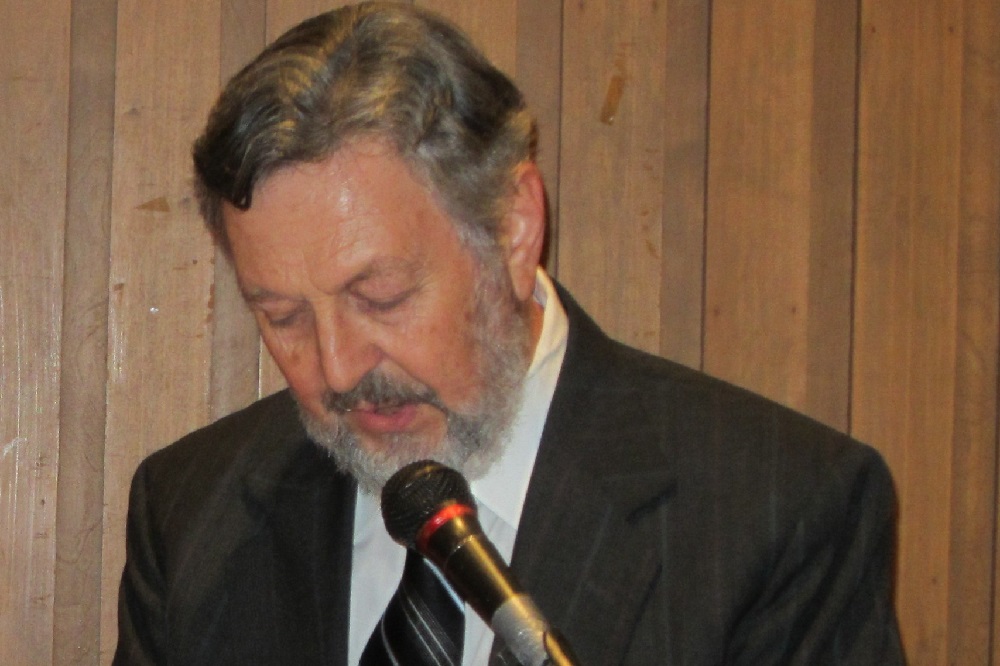One Life, One Calling
(The following editorial was hand-delivered on April 4, 2005 to Bishop Joseph Martino of the Diocese of Scranton on the passing of Pope John Paul II)
“Sunset, and evening star, and one clear call for me!
And may there be no moaning of the bar, when I put out to sea.
Twilight, and evening bell, and after that, the dark!
And may there be no sadness of farewell, when I embark.”
–break–
In his immortal poem “Crossing the Bar”, written just before his death in 1889, the famous British poet Alfred Lord Tennyson spoke of his acceptance of the inevitability of death and of his belief that, one day, he would meet his creator. He asked that the poem be placed at the end of his collective works after his death. In the years that followed, “Crossing the Bar” became one of the most beloved poems in the English language. It is also a fitting tribute to the life and works of Pope John Paul II who died on April 2nd leaving a grieving world to mourn his passing.
In many ways, this man was an enigma. As a linguist and a former actor, athlete and member of the Polish underground who resisted the Nazi occupation of his native Poland, he was also a philosopher and above all else a true traditionalist in his social and religious views. More importantly, he was a devout believer in religious freedom.
The passing of Pope John Paul II is a time of profound sadness for people of all faiths. He was an extraordinary man who devoted his life to universalizing the message of the Church and spreading the gospel to the farthest reaches of the civilized world.
Although he led the struggle to free Eastern Europe from the yoke of communism, he recognized that as societies achieved greater freedom and affluence, they tended to become more secular. But it was a contradiction that he refused to accept, for he himself had known both bondage in the quarries of Nazi-occupied Poland and freedom in the aftermath of the fall of Soviet communism yet he never wavered in his faith nor doubted the passion of his mission.
He became the most traveled pope in history and strengthened ecumenical ties between Catholics and other faiths. He made enormous strides to aid the poor and to help the West understand its need for a “culture of life.” He insisted that there was a world beyond politics and that his church’s critical mission was to minister to the soul. Thus, he forbade Catholic clerics from serving in government and, as a consequence, he refused to accept the use of religious language to justify violent change whether it emanated from the forests of Latin America or the madrasses of the Middle East.
He made important contributions in numerous areas, but three will remain as his legacy – his endless quest for religious freedom, the need for human tolerance and understanding, and the importance of unity and dialogue amongst the Christian churches of the world. No Pope since the Reformation spent more time in conversation with the Protestant churches. No Pope in the intervening centuries worked harder to seek advice from both Protestants and Orthodox leaders and theologians on how best to use his influence in the service of all Christianity.
It was John Paul II who continued to break down the religious and historical barriers that separated Christians from their Jewish brethren. He was the first Pope ever to visit a synagogue; to honor the memory of the victims of the Shoah (Holocaust) with a memorial concert in the Vatican; to establish full relations between the Holy See and the State of Israel; and to make an official visit to the State of Israel. His forceful condemnations of anti-Semitism as a sin against God and man were highlighted by the Liturgy of Repentance that he initiated on the eve of the millennium, asking forgiveness for sins committed by Christians against Jews through the ages – a text that he himself placed in the Western Wall in Jerusalem.
His critics will say that he stopped progress, chilled debate that sought to find common ground between church traditions and modern egalitarianism, and that his orthodoxy overwhelmed the humanistic aspects of his legacy. But his backers will credit him with returning the church to its core beliefs. All, however, will agree on one thing – the influence of the man on doctrine will last for generations.
After serving his life “in the shoes of the Fisherman”, John Paul II now looks upon the face of his “Pilot” across the bar, knowing that his time among us was spent doing God’s work. Our community joins you in mourning the passing of a great man. When historians take their full measure of the 20th century, they will linger on his profound works. “How many battalions does the Pope have?” Stalin once asked. Enough to change the world it seems.
As Horatio said on Hamlet’s passing and as we say now in memory of Pope John Paul II: “Good night, sweet prince. May flights of angels sing thee to thy rest.”

